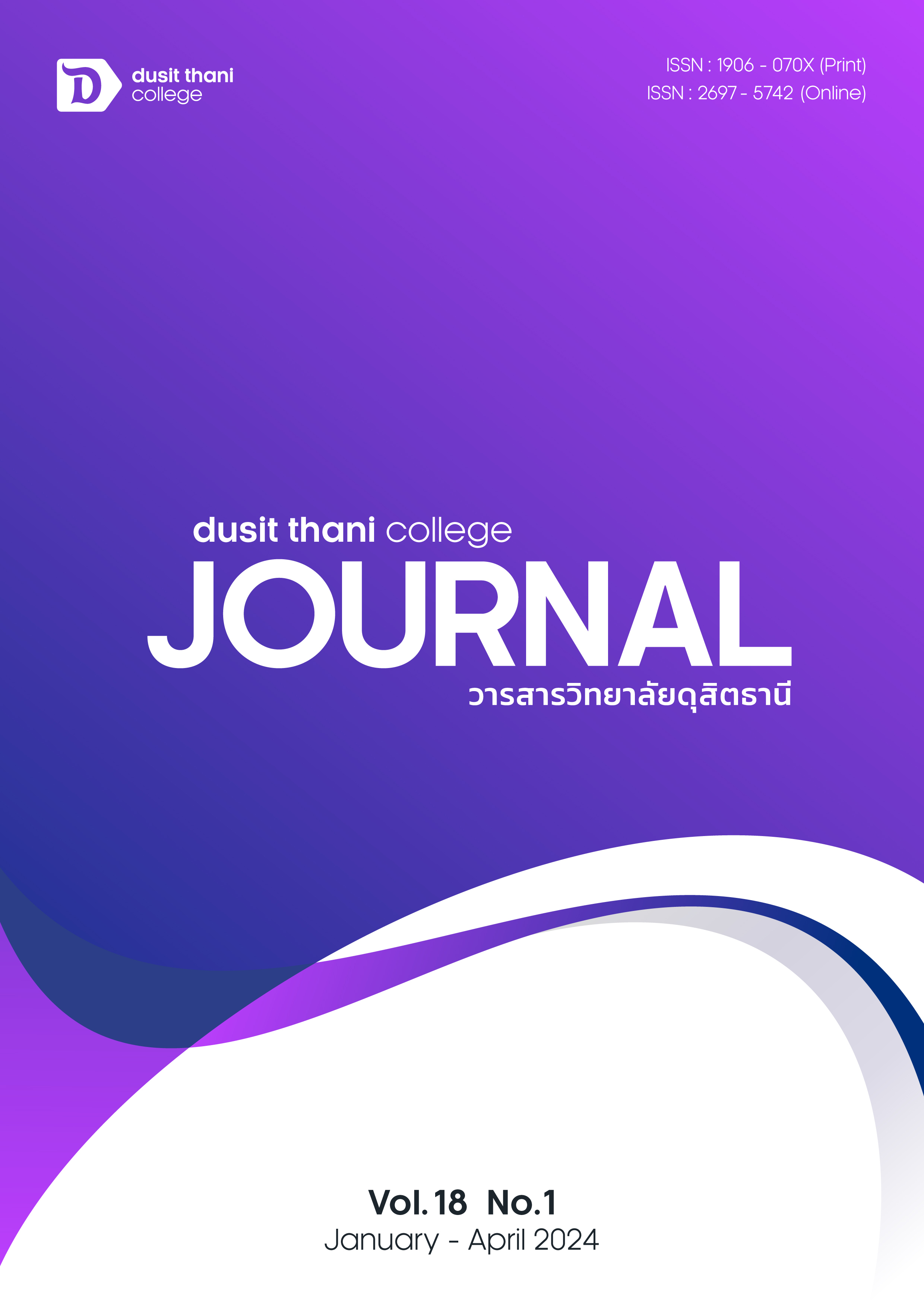Perceived Value Towards Products with Healthier Choice Nutritional Label Among People in Bangkok and its Vicinity
Main Article Content
Abstract
This research aimed to 1) study the behavior of people to purchase products with healthier choice nutritional label among people in Bangkok and its vicinity 2) study perceived value towards products with healthier choice nutritional labels among people in Bangkok and its vicinity 3) compare individual factors to perceived value towards products with healthier choice nutritional labels among people in Bangkok and its vicinity. The research was conducted based on an exploratory research design. A questionnaire was used to collect data from the sample of 600 people selected by multi-stage sampling. Statistics used in the research were frequency distribution, percentage, mean, standard deviation, t-test, and One-way ANOVA with LSD test (Least Significant Difference).
The findings revealed that most of the participants were women, aged 31-45 years, graduated with a bachelor’s degree, working as company employees/employees of the private sector, with
a monthly income of 10,001-30,000 baht, 2) the most common behavior to purchase products with healthier choice nutritional label among these people was purchasing behavior. The reason for the purchase was it contains nutritional value. The place where they purchased was a convenience store. They spent 101-200 baht on each time of purchase. They were influenced by recommendations given by salespersons/dealers, 3) their perceived value towards products with healthier choice nutritional labels among people was overall at a high level. The aspect with the highest mean was emotions, followed by quality, and 4) with regard to the hypothesis testing, individual factors of people in Bangkok and its vicinity, i.e. age, education level, career, and monthly income that are different had different effects on their perceived value towards products with healthier choice nutritional labels among people in Bangkok and its vicinity.
Article Details

This work is licensed under a Creative Commons Attribution-NonCommercial-NoDerivatives 4.0 International License.
Article Screening Policy
- All research and academic articles to be published must be considered and screened by three peer reviews in the relevant field / article.
- All articles, texts, illustrations and tables published in the journal are the personal opinions of the authors. Editors don't always have to agree. And no responsibility whatsoever is the sole responsibility of the author.
- The articles to be published must never be published. Where did you first publish? And not in the consideration of other journals If the audit found that there has been a duplicate publication It is the sole responsibility of the author.
- Any article that the reader sees as being plagiarized or impersonated without reference. Or mislead the work of the author Please let the journal editor know it will be your greatest blessing.
References
Akarapisit, A. (2019). The Influences of Perceived Value, Perceived Risks, and New Product Adoption on Purchasing Decision Making of In Vitro Meat of Thai Generation Y and Generation Z Consumers in Bangkok. (Research Reports). Siam University.
Chaoprasert, C. (2003). Service Marketing. Bangkok: SE-ED Education.
Institute of Nutrition Mahidol University. (2022). Guide to Applying for the Nutrition Symbol "Healthy choices". Retrieved from https://healthierlogo.com/version-thai/.
Kiattananuson, M. (2018). Factors affecting purchasing decisions “Healthier Chioce” of working people in hatyai, songkhla. (Master of Business Administration Program Business Administration major). Ramkhamhaeng University.
Krungsri. (2022). Business Industry Trends 2022-2024 Ready-To-Eat Food Industry. Retrieved from https://www.krungsri.com/th/research/industry/industry-outlook/Food-Beverage/ready-to-eat-food/IO/io-ready-to-eat-food-2022-2024.
Mahattanyawanich, T., Wongsansukcharoen, J., and Sarapad, S. (2018). Service Marketing Mix and Customers' Perceived Value Influence to Customer Loyalty of Healthy Food Restaurant Chon Buri Province. Journal of Administration and Management. 8 (1), 69 - 82.
Ratanawaraha, A. (2020). Thai people in the future will all be urban people. Retrieved from https://www.the101.world/future-urbanites/.
Science Center for Education. (2021). “Healthy choice” label for health lovers. Retrieved from https://sciplanet.org/content/8772.
Seriratana, S. (1995). Consumer behavior. Bangkok: Phatthana Suksa.
Sun, Y. (2016). Perceived Values Affecting Intention to Purchase Organic Vegetables and Fruits of Customers in Bangkok. (Master of Business Administration Degree). Bangkok University.
Thongngam, S. and Papattha, C. (2023). Factors Affecting Healthy Food Consumption Behavior of Working-age People in Bangkok. Dusit Thani College Journal. 17 (1), 174 – 188.
Wongaiyara, P. (2018). A Qualitative Study of Perception of Healthier Choice Logo and Behavior Toward Products with Healthier Choice Logo on Consumers in Bangkok. (An Independent Study Submitted in Partial Fulfillment of The Requirements for The Degree of Master of Business Administration). Thammasat university.


